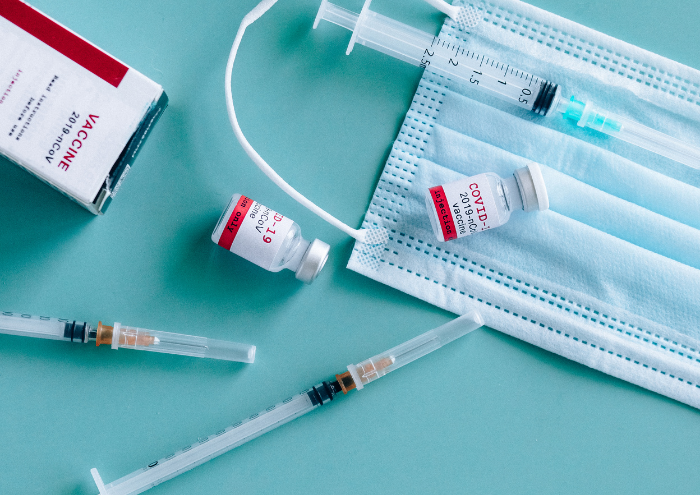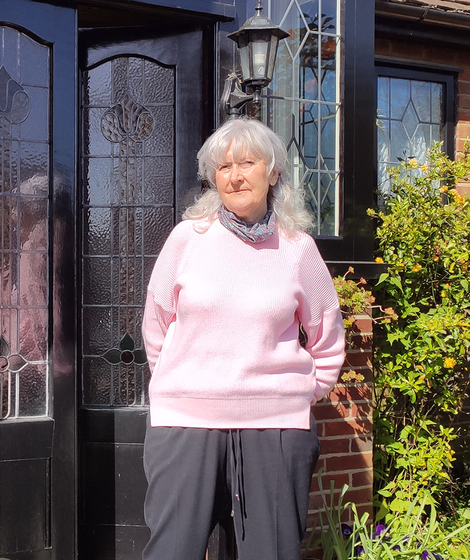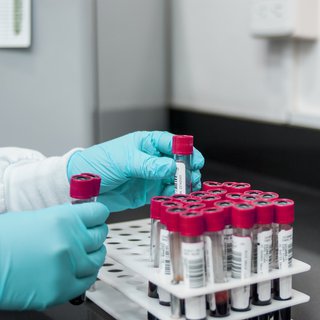Five reasons for people with blood cancer to be hopeful about the Covid pandemic
We know that many of you are worried about Covid, which is we why we want you to know that with more research into vaccine efficacy, and with better treatments on the horizon, there are reasons for you to be optimistic about the future.

Over the last few weeks, many people phoning our support line have told us that they are now more worried about Covid than they have ever been.
The emergence of the more infectious Delta variant and questions around vaccine efficacy in people with blood cancer has left many people feeling like the rest of the country is getting back to normal and they are being left behind. And with the infection rate rising, it is hard for some people to see how they will ever get back to normal.
We don’t want to sugar-coat what is a very difficult situation for our community. But we thought it would be useful to set out why, as difficult as it feels today, there is real reason to hope the next few months could bring better news.
1. The infection rate is likely to go down
If a virus continues to spread, eventually it will run out of new people to infect. And with every new person who gets immunity to the virus, whether through vaccination or being infected, it becomes a tiny bit more difficult for the virus to spread.
So we do not have any certainty about this and while no one thinks Covid will disappear, we do hope that by next year there will be enough people with immunity to mean that we will no longer see the quick growth across the country we have seen over the last couple of months.
If this happens, the lower infection rate would mean that it would generally be much safer for people with blood cancer to go about their normal life.
2. Vaccine efficacy research will give a clearer picture
There is lots about vaccine response in people with blood cancer that we do not yet understand, and so our advice at the moment is that everyone with blood cancer should continue to be cautious even after their second dose. But we and others are funding research to learn more about this, and we hope this research will help us understand which people are more or less likely to be protected by the vaccine.
We are already seeing, for example, that initial results in people with chronic myeloid leukaemia seem to be more positive than in people with other types of blood cancer. Over the months ahead, we hope to be able to make our advice more tailored to individual risk, so that we are able to advise some people with blood cancer that the vaccines are likely to have given them good protection.
3. Booster jabs could improve immunity
All of our current advice on vaccine efficacy is based on people who have had two doses of the vaccine (there are some vaccines that are only one dose, but we’ve not seen much evidence on their effectiveness in people with blood cancer).
But in the Autumn, we’re likely to see the roll-out of a third, “booster”, dose, and immunosuppressed people, including those with blood cancer, will be first in the priority list to get them.
There is currently only limited research on booster vaccines, so we’re unsure how much these third doses will benefit people with blood cancer. But we have already seen big improvements in antibody responses in people with blood cancer between the first and second doses, and so there is reason to hope that at least some of them will be better protected after a third dose than they were after their second.
Household members being prioritised should also protect people with blood cancer further.
4. Antibody treatments could offer alternative to vaccines
Pharmaceutical companies have been developing treatments that they hope could offer an alternative to vaccination for people who the vaccines may not work as well for, by injecting antibodies directly into their systems. The best-known one is PROVENT, which we wrote a blog on a couple of months ago.
These treatments are likely to be much more expensive than vaccines, and any protection may not last as long as protection from a vaccine. But the fact that they do not rely on the person’s immune response gives real hope that they might be a good alternative for people with blood cancer, whose immune systems do not work as well.
None of the trials of antibody treatments to prevent Covid have reported yet, so we must wait for more data before we can be confident that they will work effectively for blood cancer patients. We are hoping to see the first results in the coming weeks.
5. Better treatments
We now understand Covid and how to treat it much better than we did at the beginning of the pandemic, which has led to improved survival rates. But we have seen little evidence about how outcomes for people with blood cancer have changed over that time.
A recent study suggests that people with blood cancer who get Covid are much less likely to die if they are treated with convalescent plasma, which is where plasma (part of our blood) is taken from someone who has recovered from Covid and given to a patient with Covid.
We need to be cautious about this, as it this is just one study, and we would need to see more research before we could be confident this is really the case. But it does give hope that if we can show that particular treatments work well for treating Covid in people with blood cancer, we could see the proportion of them surviving it increase.
All five of these reasons for hope are about what might happen in the future. And if this pandemic has taught us anything, it is to be cautious in making predictions.
It may be that a new variant emerges that upends our assumptions, and it might be the case that some, or maybe all five, of these do not work out as we hope they will.
But looking at all five of them together, we do think there is enough in them to make us optimistic that, at least when it comes to Covid, 2022 will be a better year for our community than 2021 or 2020.
For news and updates on how these hopes develop over the months ahead, please sign up to our e-newsletter.




